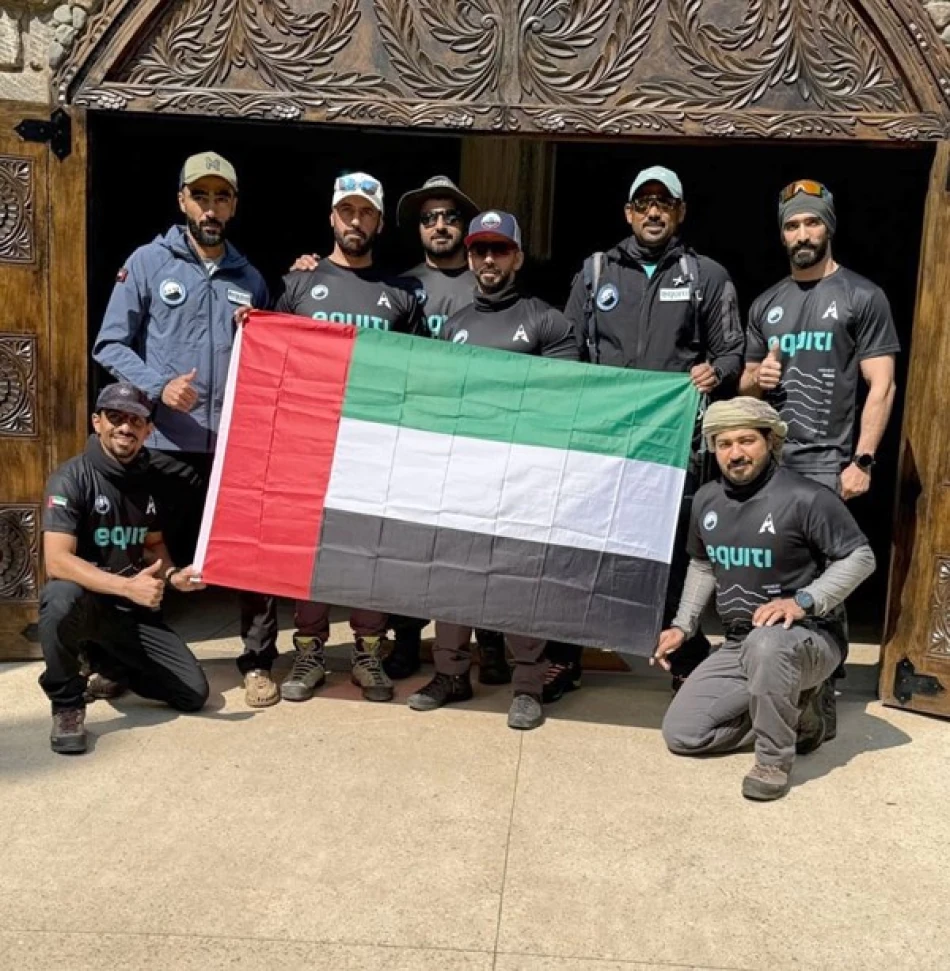
Emirati Youth Conquer Africa's Highest Peak, Planting UAE Flag on Mount Kilimanjaro
UAE Youth Conquer Kilimanjaro: A Testament to National Ambition Beyond Borders
A team of young Emiratis has successfully reached the summit of Mount Kilimanjaro, Africa's highest peak at 5,895 meters, demonstrating the UAE's growing culture of adventure tourism and youth empowerment. Their achievement goes beyond personal triumph—it reflects the nation's broader strategy of cultivating resilient, globally-minded citizens who can tackle challenges far from the comfort of their oil-rich homeland.
Choosing the Hard Path: Strategic Risk-Taking
The Emirati climbers deliberately selected the Machame Route, known as the second most difficult path to Kilimanjaro's summit. This decision reveals a calculated approach to challenge-seeking that mirrors the UAE's own national philosophy: why take the easy route when the difficult one builds greater character and capability?
The Machame Route demands exceptional adaptability to harsh mountain environments and endurance through unpredictable terrain changes. For young people from a desert nation where the highest natural point barely exceeds 1,900 meters, this represents a dramatic environmental and physical leap.
Beyond Adventure Tourism: Nation-Building Through Achievement
This expedition fits into the UAE's broader Vision 2071 framework, which emphasizes developing Emirati human capital across diverse fields. The climbers' meticulous physical and psychological preparation reflects the systematic approach the nation takes toward excellence—whether in space exploration, renewable energy, or now high-altitude mountaineering.
Regional Context and Competition
While neighboring Gulf states focus primarily on business and cultural achievements, the UAE increasingly positions itself as a hub for adventure and extreme sports. The country already hosts the world's longest zip line, tallest building, and numerous desert endurance races. These Kilimanjaro climbers extend that reputation into international adventure tourism.
Investment in Youth Capability: The Economic Angle
From an economic perspective, supporting such expeditions serves multiple purposes. Adventure tourism represents a growing global market worth over $600 billion annually. By developing local expertise in extreme environments, the UAE builds human capital that could eventually support tourism ventures, expedition guiding services, and adventure sports industries.
The psychological benefits also translate into economic value. Young Emiratis who successfully tackle Kilimanjaro return with enhanced problem-solving abilities, stress tolerance, and leadership experience—qualities directly applicable to the UAE's diversified economy.
Symbolic Victory in a Changing Region
This achievement carries symbolic weight beyond sports. As regional tensions persist and economic diversification becomes critical for Gulf states, the UAE continues demonstrating that its youth can excel in non-traditional fields. The image of Emiratis planting their flag on Africa's highest peak reinforces the nation's message of capability and ambition.
The expedition also strengthens UAE-Africa relations at a time when the country seeks to expand its influence across the continent through trade, investment, and cultural exchange. Young Emiratis succeeding on African soil creates positive associations and demonstrates respect for the continent's natural challenges.
More fundamentally, these climbers prove that prosperity doesn't breed complacency—it can fuel greater ambition. Their success suggests the UAE's next generation remains hungry for achievement, even when basic needs are abundantly met.
Most Viewed News

 Layla Al Mansoori
Layla Al Mansoori






